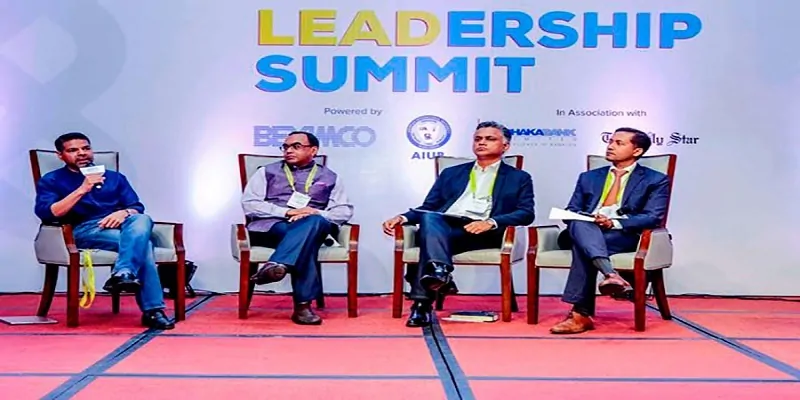Leadership, Motivation
‘Diversification in local businesses creating better future for economy’
Next decade for Bangladesh economy looks bright as diversification in local businesses beyond the RMG sector is shaping the country for a better future.
Bangladesh Bank’s Chief Economist Faisal Ahmed made the remarks on Saturday while speaking at the 5th Leadership Summit at a city hotel.
The programme was organised by Bangladesh Brand Forum, with the tagline ‘Bangladesh Dialogue for the Next 10 Years’.
The summit included the presence of leaders of various industries who shared their ideas to prepare future leaders, reports UNB.
The event comprised of four keynote sessions, two insight sessions, and four panel discussions.
BB chief economist said leveraging finance, fiscal policies, technology and avoiding policy capture will be the key to further economic development.
Faisal Ahmed also said the need for innovation and higher productivity in agriculture and service manufacturing to further establish Bangladesh’s global footprint.
One of the speakers, Anir Chowdhury, Policy Adviser for Access to Information (a2i) at the Prime Minister’s Office, talked extensively about capacity building in the form of “Innovation 2041”.
He said while individual capacity to innovate is high, the government and academia’s capacity needs to increase as well, citing the current scenario of using 19th century academic modules in the 21st century.
The introduction of service process simplification, for example, has brought benefits to citizens, who, for example, wanted access or delivery of their land records from their nearest vicinity.
What looked impossible even a decade back now it is possible, thanks to digitisation.
Anir also talked about the success story of universal health cards, which are provided to the poor, giving them priority in receiving healthcare from government medical facilities.
He said these were some of the 200 initiatives they implemented to enhance the country’s civil service innovation culture, by which the government comes to the citizen instead of the other way around.
One of the keynote speakers, Prof Robert C Wolcott, Clinical Professor at Kellogg School of Management, Northwestern University and Executive Director of Kellogg Innovation Network, stressed evolving business models to ensure survival.
“Changes must be in tune with your target audience’s needs,” he said.
Since the future cannot be predicted, he stressed exponential technology as the key to move forward.
“True breakthroughs will happen only if things happen which were hitherto impossible.”
Dr Mir Salim, principal at the Boston Consulting Group and another keynote speaker, urged the policymakers to continue to develop infrastructure and connectivity, while removing regulatory obstacles.
“Promote collaboration for integrated value chains,” he said, while fostering bilateral cooperation.
Namrata Dubashi, a partner at McKinsey & Company, urged Bangladesh to create a value proposition and also to make room for the nation within the existing value chains, through better design and branding to overcome the existing bottlenecks.
Managing Director of Bangladesh Brand Forum Shariful Islam said in the opening speech,
“We’ve come a long way as a nation and as an economy. Our performance in attaining MDGs is also a benchmark for others. Yet, the journey ahead needs innovations and proper planning and strategy to be executed by leaders for sustainable development.”
All the keynote speakers were gifted with artworks of prolific Visual Artist Nazia Andaleeb Preema, who is also the President of Women in Leadership (WIL).
Source : Financial Express





